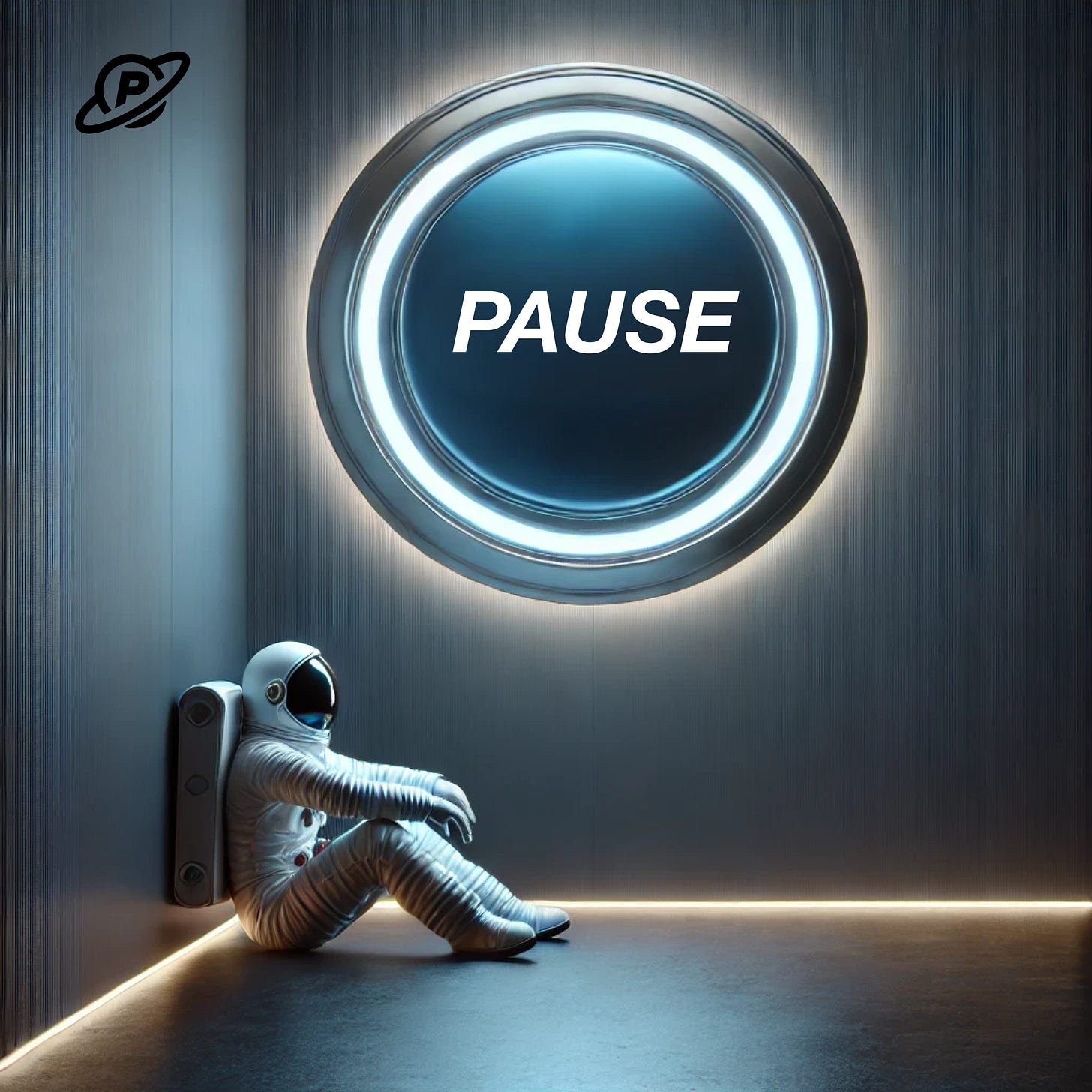Pause – Decision-Making Superpower
Taking your time — the tool that helps you gain perspective.
You can master all the mental models, decision-making frameworks, and cognitive biases, but you won’t improve if you act too fast without taking time to think.
It’s early in my career and I'm on a call with a client. It’s supposed to be just an update call, but then they present something they need ASAP for investors. They ask me for an estimate, and I answer immediately because it seems important: "It’ll take one week…" But I’m wrong — it isn’t as simple as I think. As I promised, I wanted to finish it on time, so I spent a few nights working on it. I didn’t miss the deadline, but I regretted not taking the time to estimate it properly.
After that, I never estimate during a call. I try to be as polite as I can and explain that I have a rule: I don’t estimate features on the fly. I promise to get back to it after the meeting.
Time is a basic tool that helps to gain perspective. It can be applied to various aspects of our work. It has saved me many times. Here is how I use it:
Pressing Pause
Press pause and take your time to help yourself by:
Detaching from emotions that blur your judgement at the moment.
Making sure that you can check for blind spots.
Getting a new perspective.
People may demand answers immediately, and the pressure can be high, but they rarely argue with rules. You can say: "I have a rule that I never answer immediately”.
Daniel Kahneman, known for Thinking, Fast and Slow, shared a similar rule in one of his interviews. He noticed that, while talking to someone on the phone, he often said "Yes" to please the other person. He agreed to favours that he later regretted. So, he started saying, "I have a rule that I don’t answer during the phone call. I will get back to you tomorrow." This helped him stop saying "Yes" too often. While he made this rule to stop pleasing others, it also works well for taking time to think about a decision.
Dealing With Triggering Messages
People see me as calm, calculated, and not emotionally driven. But that's just the visible part.
Like everyone, I’m driven by emotions, especially when I see messages that make me want to jump in and write clarifying responses. These immediate responses might be impolite or just strong. So, when something like that happens, I force myself to pause before reacting.
Press pause when you receive anything annoying. It can save you from many regrets. Whether it’s a triggering message on Slack or a triggering email, wait a few hours or even a day before replying. It'll be much easier to respond precisely and clearly once some time has passed.
Leading People Who Need Answers
It's difficult to pause when the pressure is high, especially when many people are waiting.
I was directly involved in the layoff process and had to let a dozen people go in two days. Right after that, I faced the rest of my teams who weren’t affected. They needed answers — right now. There were many questions, and for most of them, I needed to pause, sometimes for longer. For some, I had to admit that I didn’t have the answer, like whether we would be doing more layoffs in the future.
If you don’t have an answer, pausing alone won’t help: State clearly what you are in control of and what is outside of your control. The important thing is to list all the actions you are taking, so they know you care about it.
Summary
Taking the time needed is important to help you make better decisions, and save yourself from many regrets of clicking the send button way too early.
What is your strategy to make sure you are not answering or deciding far too soon? — You can pause and think about it.
Thanks for reading,
— Michał
Post Notes
Discover Weekly — Shoutouts
Articles that might help you explore new perspectives, which I’ve read recently:
Being an Engineering Manager at Meta by Gilad Naor and Anton Zaides
Engineering Influence: How to Communicate for Real Product Impact by Samuel Kollát
Say Goodbye to Awkward Performance Reviews by Suresh Choudhary




Great article! Two insights really struck me: “Time is a basic tool that helps to gain perspective” and “They rarely argue with rules. You can say: ‘I have a rule that I never answer immediately.’”
Both those bring strength to your point about the power of pausing - not as hesitation, but as a deliberate strategy for better decision making.
That said, are there situations where acting quickly is actually the better choice? In fast-paced environments where speed is critical, how do you balance the need for thoughtful decisions with the urgency of the moment? Also, while pausing can help prevent emotional reactions, do you ever find that waiting too long can make a response feel detached or not entirely authentic?
Really enjoyed this post
Really loved this one!
I faced the same situation during the layoff process at my previous company and had to deal with questions from those who weren’t affected. I didn’t have all the answers, and my manager didn’t either, so I took a similar approach. I tried to be as transparent as possible but it was probably one of the toughest moments in my career.